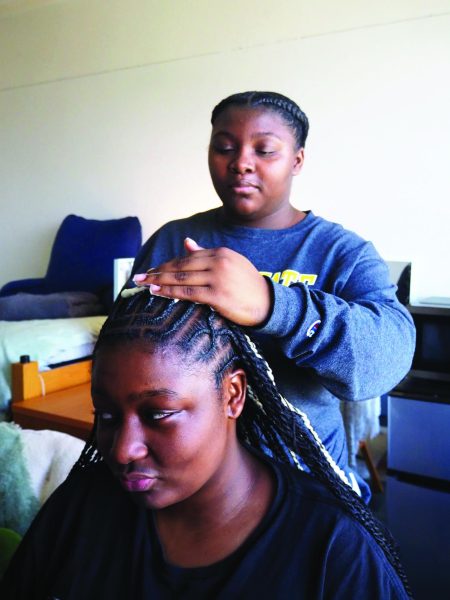1% Budget cut
April 26, 2018
Reductions. Reductions. Reductions. They are just an impact that college systems have to deal with. Nebraska state colleges – Chadron, Peru and Wayne – have gone from expecting a 2 percent raise in budget cuts to only 1 percent.
“It’s a 2 percent cut from this current year, so we have to give 2 percent back of our state allocation right now,” said Jay Collier, director of college relations. “Then there’s a 1 percent reduction in next year’s allocation.”
He said that after they hand over this year’s money, they will get a 1 percent reduction in the allocation than it would have been before.
“The governor’s budget called for a 2 percent reduction this year and a 4 percent reduction next year, then the appropriation committee held hearings in February,” said Collier. “We went there, the chancellor went there, they made our case for us—for the Nebraska State College System—took a support book that was about two inches thick. It was filled with editorials by regional newspapers, letters of support from business leaders, a whole host of people who said ‘it’s really import that you hold the state colleges as harmless as possible during this budget reduction’.”
He said that it was also added that less of a reduction should be given because it would negatively affect the colleges’ abilities to serve the students.
“We were hopeful that would have an effect, and then when the appropriation committee was done—what they advanced to the legislative floor—was a two plus one,” said Collier. “We crosses our fingers, they voted on it, the legislature approved that plan and then the governor signed off on it without vetoing it.”
He said that they planned for the worst while hoping for the best. They followed it through the legislature, the information is all public information.
“After the appropriation committee held the hearing we waited (they) did their thing, what they advanced to the legislature floor for the budget bill was two and one,” said Collier.
He said they responded with joy with cautious optimism. After going to the floor, there was a period of time where the decision was delayed because the bill had a request attached to it that said the budget bill have some tight restrictions regarding Title X funding.
“So the bill got held up, passed the normal time in which they would have approved,” said Collier. “Again we were a little nervous about that, but the legislature managed to get the votes they needed for cloture – which is to close debate and move it to a vote.”
He said they got the votes they needed to approve it. The governor had five days to approve it, and he approved and signed off on it in four days. There were no vetoes.
“We are breathing a sigh of relief compared to where we were back in January,” said Collier. “Two plus four on top of the reductions that we had weathered last year, would have been very difficult for us as an institution. Two plus one means we still have to give up 2% of this years’ budget, which we had already planned for. That money was already set aside back in the fall.”
He said that they anticipated looking at state forecasting there would be another round of cuts. The 1% means that there are some cuts that will be made.
“Not as bad as it could have been for us obviously,” said Collier.
According to Omaha World Herald, there will be a $300 increase in tuition next school year from the cost in the 2017-2018 school year.
He said they feel fortunate that the legislature decided to lessen the impact of the budget cuts state colleges received.
“It’s important to know that a lot of people went to bat for us,” said Collier.
He said they owe a debt of gratitude to business leaders, community leaders, the legislature and editorial boards of newspapers who rallied in a short amount of time to put together a packet. The packet made an impact on the hearing committee.
“These are consecutive cuts,” said Collier. “What we want to do is keep quality education affordable.”
He said this negatively affect their ability to do so. He wanted to thank all of the students that signed the petition, the school had. Many students went online taking advantage of the opportunity giving heartfelt explanations as to why the school is important for them. These comments were included in the packet to the legislature.
“My deepest, deepest appreciation to the student body,” said Collier. “We had about triple the number of students sign the petition than did the other state colleges.”








